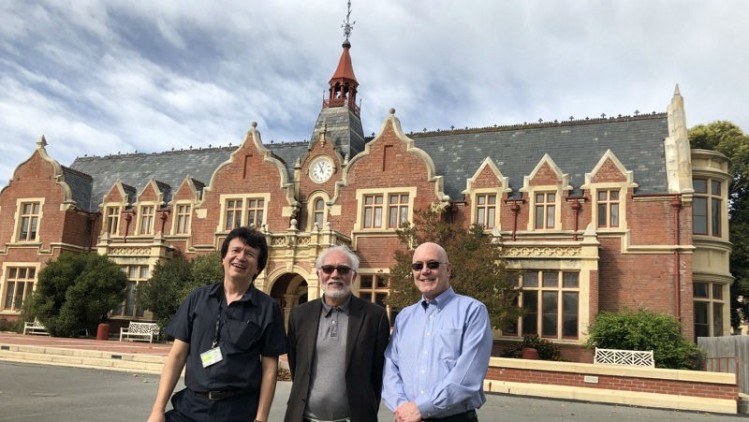Ground-breaking food bacteria scanner in New Zealand will have 'global impact'

The scanner, called a BEAM device, was developed at Purdue University in the United States with an initial focus on the US market.
The only device of its kind outside the US, it has since been offered free of charge to Associate Professor Stephen On of Lincoln University in Canterbury, New Zealand.
This initiative was a result of a partnership between Dr On, a taxonomy expert — specialising in classification, especially of organisms — and two senior US food safety researchers.
Taking research further
Dr On recently received an $80,000 catalyst grant from the New Zealand Royal Society Te Apārangi to use the scanner for local-focused research that will complement the studies already being undertaken in the US.
Lincoln University said the resulting data will be pooled for “maximum global impact”.
The BEAM scanner is designed to better identify disease outbreaks by providing a “specific fingerprint” of bacteria cultured on a standard agar media plate.
This allows scientists to pinpoint strains of interest more quickly, with a particular focus on pathogens.
“If there’s an outbreak of E. coli or Salmonella, for example, you may have dozens of samples to examine. The technology provides the major advantage of identifying the pathogen of concern by rapidly screening it from microorganisms naturally present in food or clinical samples,” said Dr On.
“Because it’s non-invasive, you can take your isolate of interest and further characterise it with sub-typing methodologies to better identify an outbreak.
“No comparable technology is available elsewhere — it’s a game-changer.”
How it started
The project with the US experts began after Dr On visited Purdue University in Indiana in 2015, to investigate whether the BEAM technology would be relevant to New Zealand.
The results — some of which involved 26 pathogenic E. coli strains important to New Zealand meat products — were promising.
“They showed the potential value of BEAM to national problems and indicated that the method might be capable of identifying E. coli strains with a higher infection potential than others,” said Dr On.
“This is a first in the history of underpinning BEAM research.”
The US researchers involved are Endowed Cytometry Professor J. Paul Robinson, of Purdue University, and Professor James Lindsay, senior national programme leader for the US Department of Agriculture.
Ongoing work
Dr On will continue to collaborate with the US researchers to examine a geographically diverse range of strains of microbial species that are of clinical and economic importance to New Zealand and the US.
He said the economic and public health significance of pathogenic E. coli remained of critical importance and partners of the New Zealand Food Safety and Science Research Centre (including ESR and Plant & Food Research) had identified other bacterial pathogens of concern, such as Campylobacter and Listeria.
“This requires improvements in diagnostics,” said Dr On.

















